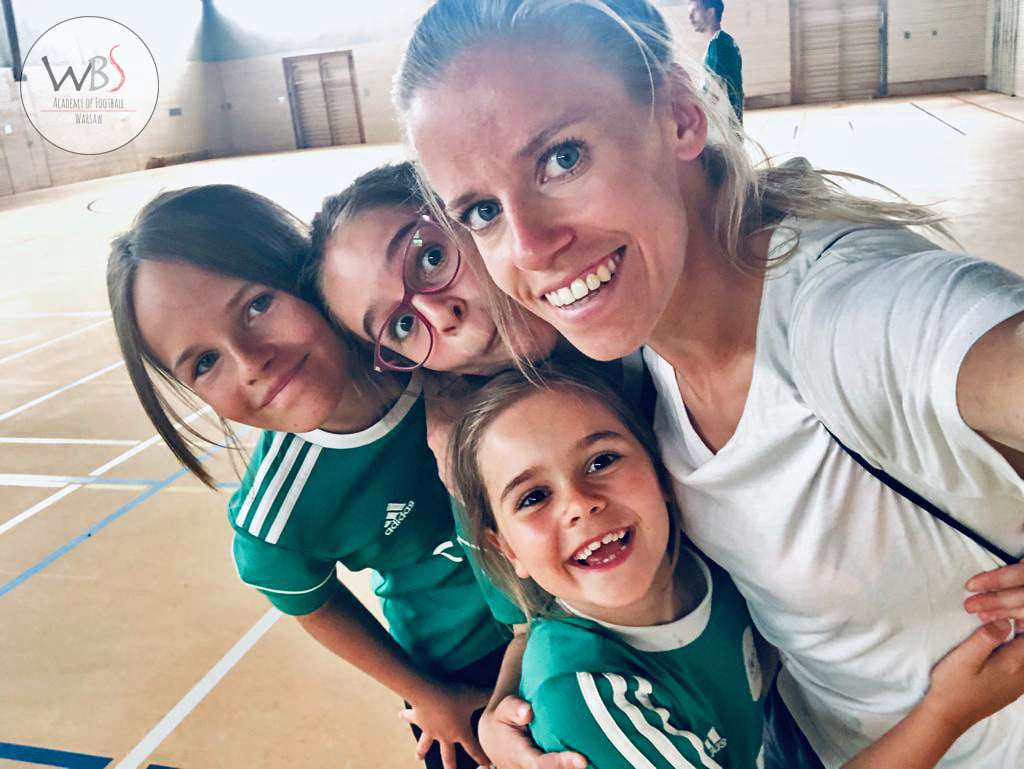 Contact us
Contact us

We're back Q&A! Our players ask questions related to the proper nutrition of a young athlete, and our Dietitian dispels any doubts that arise!
My legs often hurt and my muscles pull. Could it be affected by my diet? What do i need to pay attention to?
The first thing to start with is whether you have enough time to recover. Remember that there is a rule for athletes that the number of recovery hours must be proportional to the number of hours of training, matches and other physical activity. It also happens that even more time is needed to regenerate. What is this regeneration? It is not about lying down and not moving completely, but most of all about getting the right amount of sleep, proper nutrition and hydration of the body. Analyze your diet, whether you eat regular meals or provide the right amount of protein with your diet in the form of: milk, yoghurt, cottage cheese, eggs, meat, fish, legumes (beans, peas, lentils, chickpeas). Is your menu varied and includes a lot of vegetables, fruits and whole grain cereal products, which will prove the supply of many valuable vitamins and minerals? What else can support your body are baths using the warm-cold-warm-cold method. This way, we accelerate tissue reconstruction, but remember to finish the bath with cold water. Athletes rest actively, so on non-training days you do not have to lie down, just go for a walk, bike or swimming pool, which will additionally relax your muscles. If your health condition does not improve and microtrauma continues, it is worth doing a blood and urine test to check biochemically for signs of malnutrition and fatigue.
Apparently, strawberries are good for athletes. If I don't like them, what kind of fruit can I exchange them for?
Strawberries are an important fruit in the diet of athletes, but not the only and irreplaceable. Why are they so valuable? They are low in calories, so they do not cause sudden fluctuations in blood sugar, are easily digestible and versatile enough that we can not only eat them directly as a snack, but also use them for all kinds of cocktails, mousses, porridge, pasta with cottage cheese and yoghurt, and even for summer salads. Strawberries belong to the group of berries that should be included in the diet of a football player due to the content of many vitamins, minerals and active substances supporting the regeneration process, which is so important for an athlete. If you don't like strawberries, go ahead and eat raspberries, blueberries, currants, blueberries and blackberries.
What products are best for a footballer to keep his joints healthy and strong?
The most important thing is to follow the basic principles of healthy eating, which we are constantly calling for. Only then are we able to take care of our body "from the inside". It is not without reason that it is said that man is what he eats, so let's provide our body with a diet of good-quality products that have a pro-health effect on our health. By focusing only on strong joints and reducing the risk of any injuries and injuries, we can confidently mention proper hydration, vitamin C and elements such as copper and silicon. It is true that it is difficult to shorten these ingredients, but it does not mean that they are not important to us. On the other hand, in the case of hydration of the body - it is easy to lead to disturbances, especially at high air temperatures, so pay attention to it especially at this time. We drink often but in smaller amounts.
Should I supplement anything when I am 12 years old, e.g. protein?
At the beginning, you should start by analyzing your diet, i.e. what your diet looks like. Is the number of meals appropriate, do you eat them regularly during the day and, above all, what do you eat, i.e. what quality are these products? If the basic principles of healthy eating are followed, this is a huge plus for you. When it comes to protein supplementation, it is definitely too early for it, as long as there are no problems with the supply of protein from products in the diet during the day. We use other, more specialized supplements for athletes, which are aimed at improving exercise capacity, only after the age of 16 or even 17. Before that, we can additionally take vitamin D and K and healthy fats, i.e. omega-3 fatty acids, as well as individual minerals, if indicated. In the case of high physical activity at your age, you can also start supplementing with carbohydrates, but you should do it gradually and in small amounts to get the digestive system used to it, because, as we know, it likes to protest in the form of abdominal pain and diarrhea.